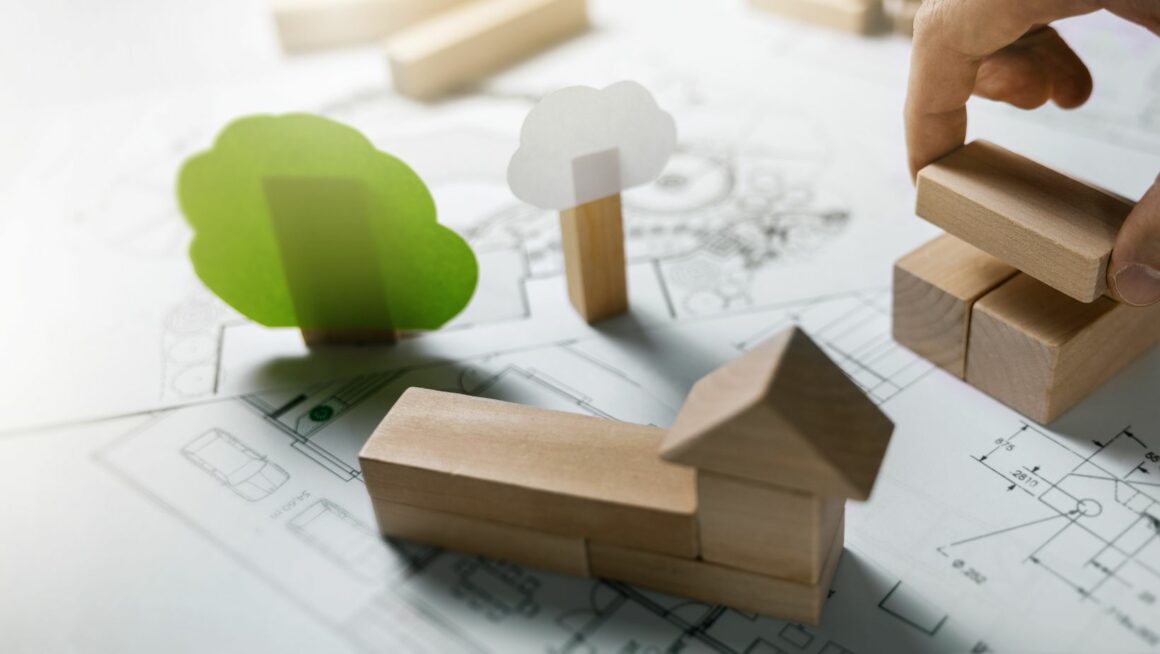As the world grapples with climate change and resource depletion, sustainable building companies are stepping up as vital players in the construction industry. These firms are not just about erecting structures; they’re committed to reducing environmental impacts and promoting ecological balance through innovative design and building practices. By integrating green technologies and materials, they’re paving the way for a future where construction contributes positively to our planet.
Sustainable Building Companies
Sustainable building companies are essential in crafting environments that are both environmentally friendly and innovative. They blend aesthetics with functionality to meet modern sustainability standards.
Why They Are Gaining Popularity
 Sustainable building companies are becoming more popular as awareness of environmental issues increases. Homeowners and businesses alike seek ways to reduce their carbon footprint, and sustainable building practices offer effective solutions by incorporating green technologies. Such technologies include solar panels and energy-efficient appliances, which not only help conserve energy but also reduce long-term operational costs.
Sustainable building companies are becoming more popular as awareness of environmental issues increases. Homeowners and businesses alike seek ways to reduce their carbon footprint, and sustainable building practices offer effective solutions by incorporating green technologies. Such technologies include solar panels and energy-efficient appliances, which not only help conserve energy but also reduce long-term operational costs.
Furthermore, government policies and incentives for greener buildings have propelled the demand for such companies. Regulations often require new constructions to meet specific sustainability criteria. As more regions adopt these standards, the market for sustainable construction expands significantly.
Finally, there’s a growing social responsibility movement among consumers and corporations aiming to support ethical practices. Choosing sustainable building options reflects a commitment to environmental stewardship and societal well-being, appealing to a broader audience and encouraging more businesses to adopt green building techniques. This shift toward sustainability is reshaping how industries and individuals view construction and development.
Key Features of Sustainable Building Practices
Sustainable building practices enhance efficiency and minimize environmental impacts. These practices are fundamental in the execution of projects by sustainable building companies, promoting longevity and responsibility in urban development.
Energy Efficiency and Renewable Resources
 Energy efficiency stands at the core of sustainable building. It reduces operating costs and lessens energy consumption. Sustainable buildings often incorporate features like high-efficiency windows, LED lighting, and advanced HVAC systems to minimize energy use. Integration of renewable resources such as solar panels, wind turbines, and geothermal systems helps power buildings sustainably. For instance, solar panels convert sunlight to electricity, offsetting traditional energy demands. Similarly, geothermal systems use the earth’s stable underground temperature to heat and cool buildings, reducing reliance on fossil fuels.
Energy efficiency stands at the core of sustainable building. It reduces operating costs and lessens energy consumption. Sustainable buildings often incorporate features like high-efficiency windows, LED lighting, and advanced HVAC systems to minimize energy use. Integration of renewable resources such as solar panels, wind turbines, and geothermal systems helps power buildings sustainably. For instance, solar panels convert sunlight to electricity, offsetting traditional energy demands. Similarly, geothermal systems use the earth’s stable underground temperature to heat and cool buildings, reducing reliance on fossil fuels.
Sustainable Construction Materials
 The use of sustainable construction materials is crucial for reducing the carbon footprint of building projects. These materials include recycled content, rapidly renewable resources, and locally sourced products. Examples of sustainable materials are bamboo, recycled steel, and reclaimed lumber. Bamboo grows quickly and absorbs a high amount of carbon dioxide, making it an excellent choice for eco-conscious construction. Recycled steel reduces waste in landfills and the energy expenditure associated with producing new steel. Locally sourced materials diminish the environmental impact associated with transportation and support local economies. These materials not only contribute to environmental sustainability but also ensure healthier indoor air quality and increase the overall value of the property.
The use of sustainable construction materials is crucial for reducing the carbon footprint of building projects. These materials include recycled content, rapidly renewable resources, and locally sourced products. Examples of sustainable materials are bamboo, recycled steel, and reclaimed lumber. Bamboo grows quickly and absorbs a high amount of carbon dioxide, making it an excellent choice for eco-conscious construction. Recycled steel reduces waste in landfills and the energy expenditure associated with producing new steel. Locally sourced materials diminish the environmental impact associated with transportation and support local economies. These materials not only contribute to environmental sustainability but also ensure healthier indoor air quality and increase the overall value of the property.
Leading Sustainable Building Companies
 Many sustainable building companies emphasize environmentally responsible practices. Among them, certain firms stand out due to their commitment to sustainability and innovation. Leading the industry, these companies integrate advanced green technologies and ethical building practices to create structures that are both eco-friendly and economically viable.
Many sustainable building companies emphasize environmentally responsible practices. Among them, certain firms stand out due to their commitment to sustainability and innovation. Leading the industry, these companies integrate advanced green technologies and ethical building practices to create structures that are both eco-friendly and economically viable.
Firms like Turner Construction Company and Skanska are well-known for their sustainable building strategies. Turner Construction has been involved in several high-profile green projects, demonstrating its commitment to building eco-friendly structures that meet the highest standards of sustainability. Similarly, Skanska, a global leader in green construction, has made significant strides in reducing carbon emissions and water usage in its projects, establishing itself as a pioneer in sustainable building.
Another prominent name in the industry is the Balfour Beatty group, headquartered in the UK but with operations worldwide. Balfour Beatty adopts innovative approaches to sustainable construction, leveraging technology to optimize resource use and minimize environmental impact. Their projects often feature energy-efficient systems and materials that are sustainably sourced and recyclable.

